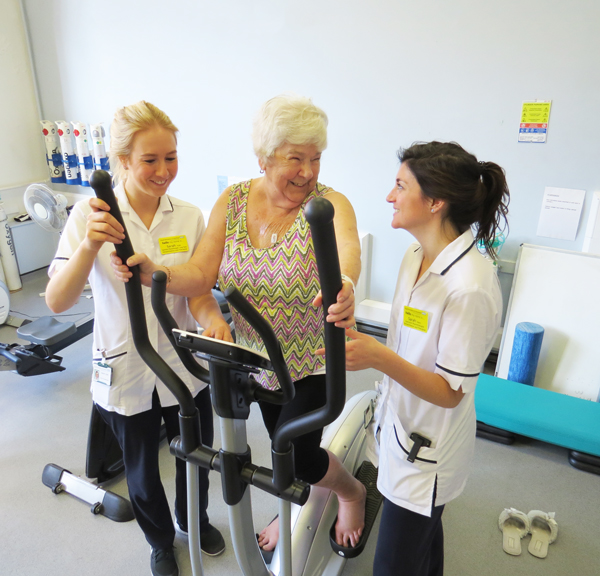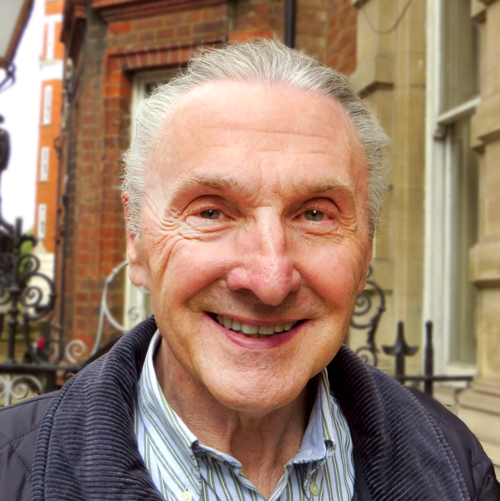People with heart and lung conditions can find some daily activities a challenge. As well as helping with recovery after a procedure, our expert therapists support patients to manage long-term conditions, cope with their symptoms and boost their independence and confidence.
Developing our services
 We continuously develop our rehabilitation and therapies services to ensure they meet the needs of our patients, many of whom have complex needs.
We continuously develop our rehabilitation and therapies services to ensure they meet the needs of our patients, many of whom have complex needs.
This year we launched an out-of-hours telephone service for people with supportive and palliative care needs, giving them instant access to one of our clinical nurse specialists whenever they need advice or support. Exercise classes for heart patients, previously only available for outpatients, have been opened up to inpatients waiting for a heart transplant. The twice-weekly classes help those on the transplant list maintain levels of fitness in preparation for their life-changing operation.
Holistic care has been a central focus this year, with psychological medicine becoming an important part of critical care follow-up clinics at both hospitals. Long-term inpatients have found 'crafternoons' and an activity trolley especially beneficial.
As part of the focus on overall health and wellbeing, the Optimising Strength and Resilience programme, led by consultant clinical psychologist Dr Anne-Marie Doyle, continued this year. This promotes an integrated approach to physical and psychological health and includes workshops and staff training sessions.
Preventing falls is essential to ensuring patient safety. This year we rolled out a collection of resources and information across all clinical areas, which has resulted in a 24 per cent reduction in falls Trust-wide
Whole-person services
Our rehabilitation and therapies services provide care for the whole patient, from exercise rehabilitation to psychological therapies and dietetics.
Our experts in recovery and therapy include physiotherapists, occupational therapists, dietitians, speech and language therapists and clinical psychologists. We also provide specialist supportive and palliative care, chaplaincy, services for older people safeguarding adults, complex discharge and psychiatry.
Working collaboratively as multi-professional teams, our experts are able to consider all the needs of patients as they recover from treatment and tackle daily life, often with a complex or long-term condition.
Exercise programme supports people with lung diseases
 People with lung problems can find it difficult to move around without getting breathless, which can be frightening. This can mean they reduce their activity levels, which makes them unfit and even more breathless. Pulmonary rehabilitation can help break this cycle.
People with lung problems can find it difficult to move around without getting breathless, which can be frightening. This can mean they reduce their activity levels, which makes them unfit and even more breathless. Pulmonary rehabilitation can help break this cycle.
Our respiratory physiotherapists run an eight-week, twice-weekly exercise class programme which helps people with lung problems to cope with their breathlessness and to feel stronger and fitter.
Patients who start the programme have their current exercise ability checked, to give a baseline to work from. Each one-hour session involves a warm-up and then a series of exercises using equipment such as a treadmill, rowing machine and exercise bike. Educational sessions also run alongside the classes, covering topics such as airway clearance techniques, advice on inhalers, and stress management and relaxation.
Anthony Page-Wood, 67, has been a patient at Royal Brompton for more than 30 years. He has alpha-1 antitrypsin deficiency, a genetic lung disease and has had a number of operations, including a recent lung reduction procedure. He took part in the pulmonary rehabilitation exercise programme on the advice of his consultant.
Mr Page-Wood explained that the programme helped him in a number of ways: "It was a good experience for me and the benefits are definitely there. The people on the course have a range of lung and respiratory conditions and the programme is tailored to take into account each person's limitations.
"Taking part in the programme has stimulated me to do more exercise and I can see small improvements in my ability. It definitely also helped me psychologically, and the group really gelled as we all have something in common."
